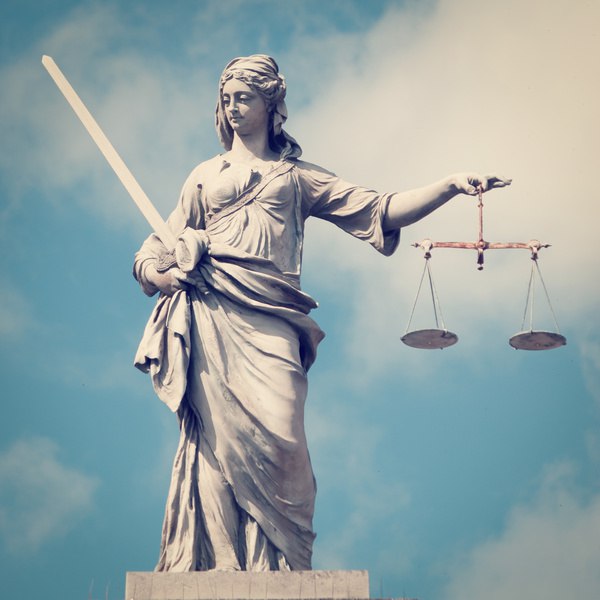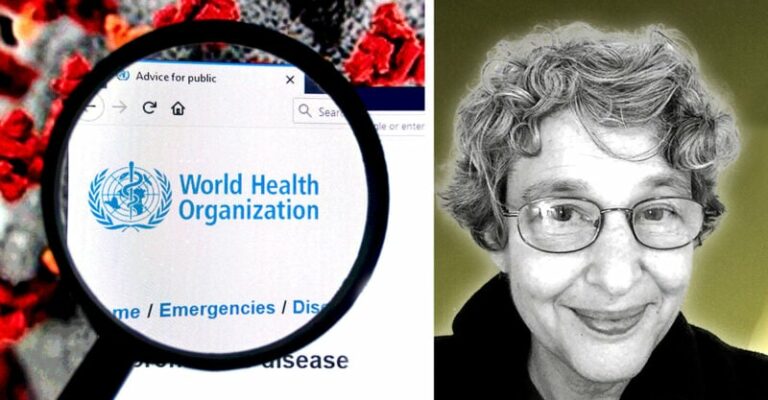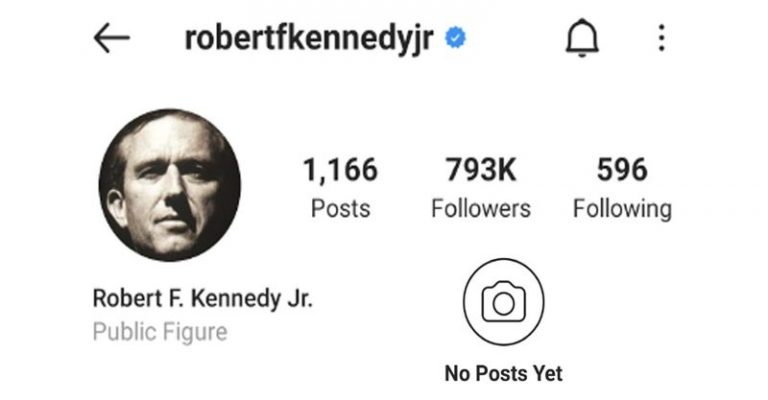‘Once You Start Censoring, You’re on Your Way to Dystopia and Totalitarianism,’ RFK Jr. Tells House Committee
This article was originally published by The Defender — Children’s Health Defense’s News & Views Website.
In a hearing marred by contentious interruptions and attempts by House Democrats to remove him as a witness, Robert F. Kennedy Jr., chairman on leave from Children’s Health Defense (CHD), testified before a U.S. House hearing organized by Subcommittee on the Weaponization of the Federal Government.
The subcommittee, operating within the House Judiciary Committee, said today’s hearing was intended to “examine the federal government’s role in censoring Americans,” “Big Tech’s collusion with out-of-control government agencies to silence speech” and the ongoing Missouri v. Biden lawsuit alleging government censorship.
Other witnesses who testified today included D. John Sauer, special assistant attorney general for Louisiana, an attorney for the plaintiffs in the Missouri v. Biden case, Breitbart journalist Emma-Jo Morris, who in 2020 first revealed the now-infamous “Hunter Biden laptop story,” and Maya Wiley, president and CEO of The Leadership Conference on Civil and Human Rights.
Government censorship and alleged First Amendment violations on the part of the federal government featured prominently in today’s hearing. “We need to be able to talk,” Kennedy told the committee. “And, the First Amendment was not written for easy speech. It was written for the speech that nobody likes you for.”
Morris testified about the threats to a free press, saying:
“What this relationship between the U.S,government officials and American corporations represent is, is an unprecedented push to undermine the First Amendment, the right to think, write, read, say whatever we want, and how we respond will determine whether we see a free press as inalienable or as optional.”
In his testimony, Sauer referred to the July 4 ruling by Judge Terry Doughty of the U.S. District Court for the Western District of Louisiana, which barred the White House and federal agencies from censoring social media posts. He said:
“The government likes to claim that social media platforms acting on their own would apply their policies and censor all this content. … The Louisiana Court found that the platforms would not have suppressed this speech, but for the fact that the federal officials were pushing for it.”
Calling the scope and reach of the federal censorship efforts “staggering,” Sauer added:
“Millions of social media posts and speakers [were censored] all across America. It affects virtually every American who reads, listens, engages, or posts on social media about great disputed political and social questions that federal censors have stuck their fingers into …. Federal officials’ censorship efforts are in full swing and they’re expanding to new frontiers.”
‘Attempt to censor a censorship hearing’
Efforts by Democrats to prevent Kennedy from testifying began earlier this week. On Monday, Reps. Dan Goldman (D-N.Y.), Debbie Wasserman Schultz (D-Fla.) and Judy Chu (D-Calif.) sent a letter signed by 102 House Democrats to House Republican leadership, requesting they “rescind Robert F. Kennedy Jr.’s invitation to testify.”
According to the letter:
“Mr. Kennedy has repeatedly attacked two groups that have long been subject to deadly discrimination. His own credibility as a witness is nonexistent. Allowing Mr. Kennedy to serve as a witness before the Select Subcommittee only services [sic] to legitimize his antisemitic and anti-Asian views.”
House Republican leadership rejected the request prior to the hearing. “The hearing that we have this week is about censorship,” House Speaker Kevin McCarthy (R-Calif.) said. “I don’t think censoring somebody is actually the answer here.”
Kennedy, in response to the accusations levied against him, set aside his prepared testimony for the hearing. Referencing the letter, he told the committee, “The 102 people that signed this [is] itself evidence of the problem that this hearing was convened to address. This is an attempt to censor a censorship hearing.”
Comparing the efforts to the McCarthyism of the 1950s, Kennedy said he is being censored “through smears, through misinterpretations of what I’ve said, through lies, through association,” adding that “While I’m under oath, in my entire life I have never uttered a phrase that was either racist or anti-Semitic.”
Rep. Thomas Massey (R-Ky.), in an impromptu interview after the hearing, said:
“The irony and cognitive dissonance from the other side of the aisle, it’s deafening. You could cut it with a knife. They are at the same time denying that censorship is occurring, but suggesting that there’s more material that needs to be censored.”
Still, efforts to stop Kennedy’s testimony continued throughout the hearing. Wasserman Schultz requested a point of order, claiming that Kennedy was in violation of House Rule 11, Clause 2, because he “repeatedly made despicable anti-Semitic and anti-Asian comments.”
Wasserman said the rule bars testimony that “may tend to defame, degrade or incriminate any person.”
Following a motion by Massey to table the point of order, a roll-call vote was held, which passed 10-8 along party lines, enabling Kennedy’s testimony to continue.
But later in the hearing, Wasserman Schultz persisted, stating that “anti-Semitic incidents … are at the highest level in the United States since 1970. They have nearly tripled in the last six years [yet] you gave Mr. Kennedy a megaphone today.”
When Kennedy attempted to respond to Wasserman Schultz’s accusations, pointing out that he was describing a study funded by the National Institutes of Health and conducted by the Cleveland Clinic, she interrupted, saying she was “reclaiming” her allocated time to speak.
Republican members of the subcommittee later approved a motion to add the Cleveland Clinic study to the record. The study confirmed Kennedy’s claims about the SARS-CoV-2 virus, finding “unique genetic susceptibility across different populations in ACE2 and TMPRSS2,” particularly for the “African/African-American population.” These claims were the basis for labeling Kennedy “racist.”
In his opening statement, Jordan noted that the Biden administration’s censorship efforts began just hours after Biden took office in January 2021.
The first example cited by Jordan concerned White House efforts to censor a tweet by Kennedy earlier that month about the then-recent death of baseball legend Hank Aaron, less than two weeks after he publicly received the COVID-19 vaccine.
“What’s interesting about the email that the White House sent to Twitter,” Jordan said, “is the subject line says ‘Flagging Hank Aaron misinformation,’” referring to information released as part of the “Twitter Files” in January.
“‘Misinformation’ is when you don’t have the facts right — you’re saying things that aren’t true,” Jordan said. “But when you look at Mr. Kennedy’s tweet, there was nothing in there that was factually inaccurate. And yet, the White House, on the third day [of the Biden administration], were trying to censor Mr. Kennedy.”
“The irony here is they are trying to censor the guy who’s actually their Democrat primary opponent,” Jordan added, referencing Kennedy’s presidential campaign.
Rep. Chip Roy (R-Texas) of the Judiciary Committee echoed Jordan’s statements. “It is for this that Mr. Kennedy finds himself receiving the scorn of both the political left and right, because if one dares challenge the orthodoxy of the powers that be, then one is their enemy.”
In her opening statement, Rep. Stacey Plaskett (D-V.I.), ranking member of the subcommittee, went on a prolonged attack of Kennedy and the subcommittee’s work.
“Why are we here? … Why are you having this hearing? What does this have to do with inflation? What does this have to do with the cost of living? What does this have to do with the everyday lives of Americans?” Plaskett asked the Republican members.
Referencing Kennedy’s presence as a witness, she asked “Why would the Republican leadership in the committee majority give a hearing and a platform to the witnesses, specifically to Mr. Kennedy, a man who has recently claimed that COVID-19 is targeted to attack Caucasians and Black people?”
Plaskett later claimed that the committee — and those questioning establishment narratives — were seeking to “bully” Big Tech.
“It’s clear that one aim of this investigation is to bully tech and media companies into turning a blind eye,” Plaskett said. “When extremist conspiracies” are espoused, she said, such speech “violate[s] very basic terms of service about deliberate disinformation and promoting violence.”
Plaskett said the subcommittee’s investigation was intended to “force social media companies to promote conspiracy theories because they think that’s the only way their candidate can win the 2024 election,” via “bully[ing] experts … on disinformation” and giving “expression to the most vile sorts of speech.”
Plaskett also appeared to attack free speech more broadly.
“Many of my Republican colleagues across the aisle will rush to cover that they have Mr. Kennedy here because they want to protect his free speech, that they do not believe in American censorship,” Plaskett said. “This is not the kind of free speech that I know of, the free speech that is protected by the constitution’s First Amendment.”
“Free speech is not absolute,” she added. “The Supreme Court has stated [that] hateful, abusive rhetoric does not need to be promoted in the halls of the People’s House. ”
She also claimed Republicans were seeking to promote “quasi-science,” in reference to Kennedy’s views about COVID-19 vaccines and other topics.
“Even knowing what they know about Mr. Kennedy’s hateful, evidence-free rhetoric,” Plaskett claimed, “Speaker McCarthy and Jim Jordan affirmatively chose to give this a platform. They intentionally chose to elevate this rhetoric to give these harmful, dangerous views a platform in the halls of the United States Congress.”
Plaskett later claimed that Kennedy’s January 2021 tweet on Hank Aaron “has not been taken down,” and attacked CHD, implying Kennedy’s campaign receives funding from the organization and claiming it is “responsible for a majority of the false information about vaccines out there.”
Discovery in the Missouri v. Biden lawsuit revealed White House emails to Twitter requesting Kennedy’s tweet about Aaron be “removed ASAP.”
In her testimony, Wiley connected Kennedy and his alleged statements to violent race-based and religion-based attacks, alleging his supposed remarks “served to drive hate and bias … including violent incidents.”
Kennedy, repeatedly responded to claims of “anti-Semitism” and “racism,” stating that “What you have stated and tried to associate me with through guilt by association is simply inaccurate. All the things that I’m accused of right now by you and in this letter are distortions, misrepresentations.”
“These are defamations and malignancies that are used to censor me to prevent people from listening to the actual things that I’m saying,” Kennedy said. “And I think … that we should have a real conversation rather than an exchange of ad hominem attacks.”
Kennedy called for unity instead of divisive rhetoric.
“We have to stop trying to destroy each other, to marginalize, to vilify, to gaslight each other. We have to find that place inside of ourselves, of a light, of empathy, of compassion. And above all, we need to elevate the Constitution of the United States, which was written for hard times,” he said.
Kennedy: ‘malinformation is information that is true but is inconvenient’
Responding to Plaskett’s claims that his Hank Aaron tweet was never censored, Kennedy said it had been, and that a new term, “malinformation,” was created soon after the Biden administration came into office, “to censor people like me.”
Kennedy said that his Instagram account had been banned despite containing “no misinformation,” but only content that “was cited and sourced,” including from “peer-reviewed publications or government databases.” Yet, he was “removed something called ‘malinformation.’”
He defined “malinformation” as “information that is true but is inconvenient to the government that they don’t want people to hear.”
Kennedy said this was “information that Facebook and Twitter and other social media sites understood was true, but that the White House and other federal agencies wanted censored anyway for political reasons, because it challenged official orthodoxies.”
Noting though that “it became more difficult for people to censor me outright” after he announced his presidential campaign, Kennedy said he is now “subject to this new form of censorship, which is called ‘targeted propaganda,’ where people apply pejoratives like ‘anti-vax’ … to silence me.”
As an example, Kennedy cited his inclusion in the so-called “Disinformation Dozen,” produced by the Center for Combating Digital Hate (CCDH). Stating that CCDH is “funded by dark money,” he said the White House based its request to social media companies to censor accounts on this list, and that those platforms complied.
Kennedy referenced further examples of censorship when responding to questions from the subcommittee’s members. Roy referenced a 2016 meeting Kennedy had with Anthony Fauci and other federal public health officials, where he requested evidence of any vaccine having undergone a placebo-controlled trial safety test prior to licensing.
According to Kennedy, Fauci and other officials “made a show” of searching for such information, then said it would be sent to him.
When it wasn’t, CHD filed a Freedom of Information Act lawsuit against the U.S. Department of Health and Human Services, forcing the release of information showing HHS was not able to locate a single pre-licensing safety trial placebo control for any of the vaccines mandated for children.
Yet, such examples are used to brand him as an “anti-vaxxer,” Kennedy said.
“My views are constantly misrepresented,” Kennedy said. “We’re not allowed to have a conversation about that with the American people, [that] vaccines should be tested with the same rigor as other medicines and medications.”
“Trusting the experts is not a function of science. It is not a function of democracy. It is a function of religion and totalitarianism, and it does not make for a healthier population,” he added.
Responding to another question by Roy as to whether “it is a proper function and role for Congress and for all of us to question” the government, Kennedy said, “That is exactly the function that the United States Constitution is signed to the people of to the members of Congress.”
Later during the hearing, Kennedy said, “I think democracy is dependent on the free flow of information. And if that information is distorted, if the public has lied to, then it interferes with elections. And by the way, it interferes with public health.”
Kennedy added that “The Wall Street Journal did an article a couple of weeks ago suggesting that the censorship of important health information cost American lives.”
Referring to Plaskett’s claims that the subcommittee’s hearing was a distraction from issues concerning everyday Americans, such as inflation, Kennedy said that his April speech launching his presidential campaign was censored by YouTube when he discussed just these sorts of issues.
“I didn’t talk about vaccines in that speech,” he said. “I didn’t talk about anything that was a verboten subject. I just was talking about my campaign and the conversation that we ought to be having with each other as Americans. But I was shut down.”
“That is why the First Amendment’s important debate, congenial, respectful debate is the fertilizer, it’s the water, it’s the sunlight for our democracy,” Kennedy added.
“This kind of division is more dangerous for our country than any time since the American Civil War,” Kennedy said. “How do we deal with that? … Do you think you can do that by censoring people? I’m telling you, you cannot. That only aggravates and amplifies the problem.”
“We need to start being kind to each other,” Kennedy continued. “We need to start being respectful to each other. We need to start restoring the comity to this chamber and to the rest of America. But it has to start here.”
Notably though, Democrat members of the subcommittee directed few questions at Kennedy, instead preferring to question their own witness, Wiley. Chris D. Jackson, an election commissioner and former Democratic party chair from Tennessee, tweeted that this was intentional, “denying him the opportunity to respond.”
‘Federal censorship is ongoing and it shows no signs of relenting’
The ongoing Missouri v. Biden lawsuit was also a prominent part of today’s hearing. In his testimony, Sauer referred to the July 4 decision of a federal court issuing a temporary injunction against several federal agencies and members of the Biden administration, limiting their interaction with social media platforms.
While that decision repeatedly came under attack by Democrat members of the subcommittee, Sauer said the July 4 opinion granting the temporary injunction “contains 82 pages of detailed factual findings, supported by 577 citations of the evidence, which is drawn from roughly 20,000 pages of the federal government’s own emails and communications with social media platforms, and six full-length depositions.”
Sauer said that even though the 5th Circuit Court of Appeals “entered a temporary administrative stay of this injunction and granted expedited argument,” scheduled for Aug. 10 — which he described as “routine practice in the Fifth Circuit,” he also said that “The government has hardly bothered to dispute any of [the] factual findings.”
He added that while it was social media platforms that censored the accounts of the “Disinformation Dozen” and other figures for questioning establishment narratives, “The Louisiana court found that the platforms would not have suppressed this speech” and “often true content.” However, “federal officials were pushing for it.”
Sauer added that “the scope and reach of federal censorship is staggering” and “affects … millions of social media posts and speakers … virtually every American who reads, listens, engages, or posts on social media about great disputed political and social questions that federal censors have stuck their fingers into.”
Moreover, Sauer said “federal censorship is ongoing and it shows no signs of relenting,” adding that “federal officials are most eager, most focused on silencing truthful speech.” If this is “left unchecked, federal censorship will reach virtually any disputed social and political question over which federal officials want to impose their power,” he said.
Referring to an earlier “Twitter files” release, Sauer said “federal officials are deeply intertwined with … the Censorship-Industrial Complex” between the federal government, social media platforms, and other nonprofit and academic organizations.
Sauer said that, as a result, “the federal censorship enterprise has succeeded in transforming online discourse by rendering entire viewpoints virtually unspeakable on social media,” including by “directly induc[ing] changes to the content moderation policies of major social media platforms to disfavor viewpoints in advance.”
He said the federal government has been able to accomplish this via both direct and indirect means, telling the subcommittee that “there’s several way you can violate the First Amendment if you’re a government official,” including “coercion,” “significant encouragement” and “joint participation, where you’ve insinuated yourselves into private decision-making,” adding that “all of those [were] present” in Louisiana v. Bauer.
Kennedy, who along with CHD is party to several lawsuits challenging alleged government, Big Tech and media censorship, told the subcommittee:
“If a government can censor its critics, that’s a license for every atrocity. It is the beginning of totalitarianism.
“Once you start censoring, you’re on your way to dystopia and totalitarianism.”
The Defender on occasion posts content related to Children’s Health Defense’s nonprofit mission that features Mr. Kennedy’s views on the issues CHD and The Defender regularly cover. In keeping with Federal Election Commission rules, this content does not represent an endorsement of Mr. Kennedy, who is on leave from CHD and is seeking the Democratic nomination for president of the U.S.
This article was originally published by The Defender — Children’s Health Defense’s News & Views Website under Creative Commons license CC BY-NC-ND 4.0. Please consider subscribing to The Defender or donating to Children’s Health Defense.
Watch related video – following Thursday’s contentious U.S. House of Representatives hearing on censorship, Children’s Health Defense hosted a legal roundtable on First Amendment rights and the government’s suppression of free speech: ‘Censorship Industrial Complex — CHD Legal Panel’
Suggest a correction







